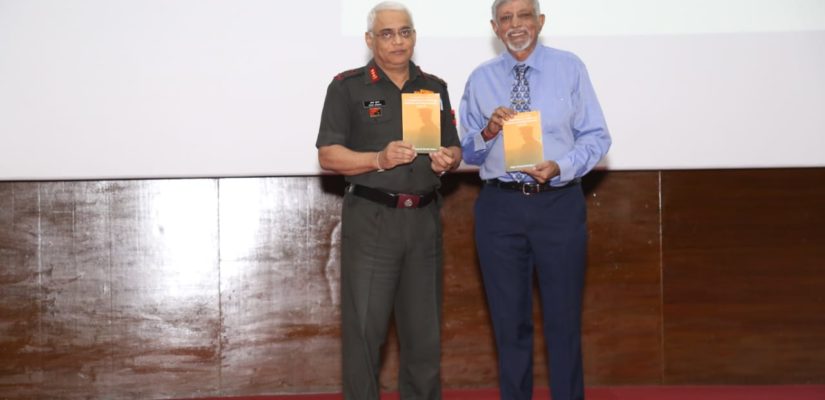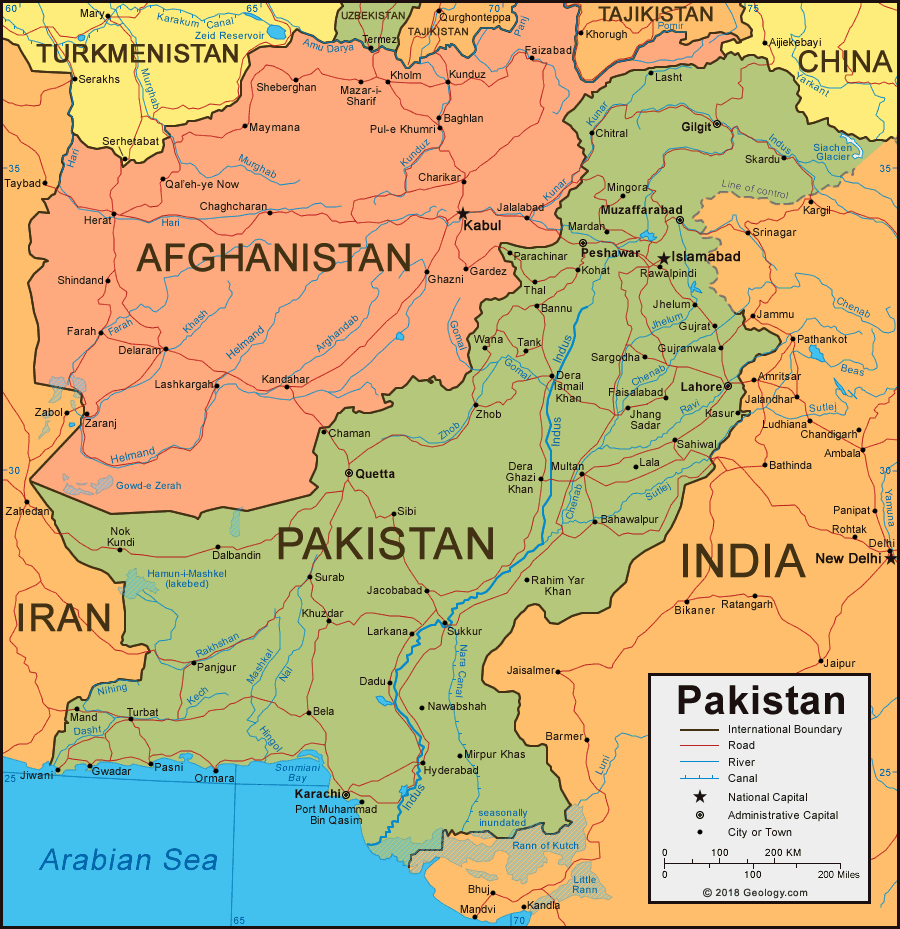
Pakistan’s muddle in Afghanistan CENJOWS 09 Dec 2020

Pakistan’s muddle in Afghanistan 09 Dec 2020
The announcement that an agreement has been reached between the Taliban and representatives of the Afghan government on moving forward with peace talks was met with relief across the globe. It will now allow negotiators to move on to more substantive issues, including talks on a ceasefire. The Taliban had refused to discuss a ceasefire during the preliminary stages seeking to maintain pressure on the government.
A report in the New York Times of last week had stated that President Ashraf Ghani was blocking peace talks from moving forward despite the Taliban and government negotiators having reached a tentative agreement on the talks’ guiding principles. The Afghan government was not privy to the US-Taliban agreement and hence took time before accepting their share of the agreement, delaying commencement of talks.
The reasons quoted for Ghani’s actions were multiple, though primarily it was the hope that the Biden administration would delay withdrawal of troops or directly commence overseeing the talks, thus pushing them in favour of the Afghan government. Currently talks are being mediated by Qatari, Pakistani and US representatives. With slow progress of talks, violence was on the rise. Last week a stolen Humvee loaded with explosives claimed the lives of 30 soldiers.
Aware that the US is losing interest in continuing operations, the Taliban also exploited the scenario. Trump’s announcement of withdrawing additional troops would expose the Afghan army and the Afghan people to greater violence at the hands of the Taliban and the Islamic State Khorasan Province (ISKP). The German Foreign Minister, Heiko Maas, had warned NATO against withdrawing troops prematurely stating, ‘tying further troop reductions to clear conditions,’ is the answer. In contrast to Trump, NATO is not withdrawing its troops, which are currently larger in number than US forces.
Pakistan had created the Taliban to challenge the Soviet invasion of Afghanistan, which were subsequently funded and equipped by the US, and has since backed them. Throughout its history Pakistan considered Afghanistan as its strategic backyard, especially when it came to a conflict with India. It felt it had the right to control the country, as being landlocked, it largely depended on Pakistan for trade and subsistence. It is also seeking credit for having pushed the Taliban for talks. Simultaneously, it has been projecting that it desires peace in Afghanistan to enable return of refugees and its own development.
Pakistan hopes that a weak government in Kabul, dependent and beholden to it for support would be beneficial to its security. It has been claiming that the TTP (Tehreek-e-Taliban Pakistan), an anti-Pak faction of the Taliban, based in Afghanistan, close to its borders, is being nurtured by India. It projected the same view in a recently released dossier. It hopes that the Taliban would deny them the space and reduce Pakistan’s security concerns.
The fact that the TTP operates in areas under the control of the Haqqani network, again a close ally of the ISI, conveys a different signal. The proximity of the Taliban and the Haqqani network implies that the TTP is acceptable to both. The rising presence of the ISKP (Islamic State Khorasan Province) mainly in the Pakistan bordering districts of Nangarhar and Kunar is another concern. In Nov 2019, over 900 ISKP cadre surrendered to Afghan authorities, majority of whom were Pak nationals.
Despite losses, the ISKP remains a formidable force capable of targeting Kabul as recent suicide attacks indicate. There is a belief in Pakistan and the West that because the Taliban and ISKP are enemies, the Taliban will lead the war against them. There are conflicting reports of members of the TTP joining ISKP as also the reverse. Added into all this confusion of groups is the al Qaeda, which remains close to the Taliban and avoids any direct conflict with the ISKP.
Afghanistan has never existed as a nation state. It is a group of tribes living in their own regions adopting their own customs and laws. The major tribes, Pashtuns, Tajiks and Hazaras distrust each other. The Loya Jirga of Afghanistan, where all tribal leaders participate and decide on major issues indicates the dominating tribal culture of the country. These tribes are ruled by tribal warlords with limited control from Kabul. Tribal armies have always defended their turfs against any invading force. With poor infrastructure and easy availability of weapons, Kabul’s control has been limited to major cities and roads leading to them.
This may continue, despite Taliban attempting to involve members of all Afghan tribes into their fold. In recent times the Pashtun dominated Taliban inducted members of the Tajik and other tribes into their organization, hoping to win acceptability. The Hazaras are backed by Iran. However, the hold of the Taliban across the country will always be questionable and challenged.
Added to this confusion is the Afghan army. Despite battling the Taliban, the Afghan army hates its Pakistani counterparts for their support to the Taliban. They are aware that most terrorist incidents are planned in Rawalpindi and involve Pak nationals. The situation along the Durand Line remains tense and there are frequent reports of clashes. The main reason being Pakistan’s attempt to shift the line and fence the border which is unrecognized by Afghanistan. Pakistan has on occasions even employed artillery to target the Afghan army and civilians. The Afghan army may be compelled to include the Taliban, post the talks, however, it would remain an enemy of Pak.
Pakistan ignores discussions on resolving the Durand Line, which was artificially created by the British and split Pashtuns on both sides of the border. They have always presumed that a weak and dependent Afghanistan would never have the power to question Pak on the Durand Line. This claim is largely misplaced.
It is a matter of time before the Pashtuns on both sides of the Durand Line would join forces to challenge the existence of it and demand a separate state or merger with Afghanistan, with whom they are closer. The Pak army’s offensive actions in the region, including extrajudicial killings, abductions and denial of basic facilities, has only alienated the Pashtuns further.
Majority of the Afghan population desires peace after a generation of conflict. They are aware that their troubles stem from Pakistan’s support for the Taliban. Despite tall claims of Pak hosting its refugees, the Afghan population have detested the Pak state, aware that it is behind their suffering. It would be decades before they forgive Pakistan, similar to Bangladesh, where Sheikh Hasina stated in a recent interaction with the Pak High Commissioner, ‘Incidents of 1971 cannot be forgotten. The pain will remain forever.’
Pakistan has been backing the Taliban and challenging the Kabul government on the hope that it would be favourable to it once it comes to power. There are many stumbling blocks yet to be covered and none of these are in Pak’s favour. These include the Afghan army, multiple terrorist groups on the Pak-Afghan border, which could soon spill over into Pakistan, occupying space vacated by the Taliban and anger within the Afghan population. As hostilities cease the Pashtun problem and the resolution of the Durand Line would rise adding to rivalry between the two countries.
While the ultimate resolution of the conflict is still at a distance however, if Pakistan imagines that a Taliban-Afghan joint government would act in its favour, it is mistaken. Its actions over the years and its unwillingness to resolve issues would only add to tensions. This situation could well be exploited by terrorist groups and hostile powers.